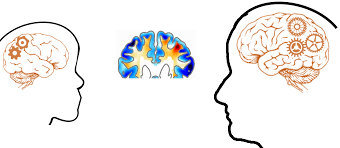Generally, the whole concept of impulsivity and compulsivity are considered to be natural behaviors controlled by the human brain. These mechanisms are essential for survival in all species in general. The understanding of these brain mechanisms can lead to targeted treatment strategies for these symptoms of either impulsivity or compulsivity especially when it becomes dysfunctional.
OVERVIEW
Basically, the full concept of impulsivity has many different aspects and definitions. But it covers a wide range of actions that are poorly conceived or planned and more importantly prematurely expressed, as well as unduly risky, or inappropriate to the situation, and that often result in undesirable outcomes. Additionally, these actions are executed with a tendency to act prematurely and without foresight. In addition, some researchers defined impulsivity “as a predisposition toward rapid, unplanned reactions to internal or external stimuli without regard to the negative consequences of these reactions to the impulsive individual or to others”. Impulsivity is not really unplanned though. For example, some gamblers can plan ahead of time to pursue their impulsive tendencies.
DEFINITION OF COMPULSIVE AND IMPULSIVE BEHAVIOURS
1. Compulsive:
Generally, compulsive behaviors are traits you have controlled by an immense urge to do something repeatedly until a feeling of anxiety or unease goes away. Compulsive behavior basically means doing something excessively and a constant inability to stop doing that particular act. These behaviors generally have negative outcomes and sometimes lead to conflicts. Common activities like shopping, exercise, eating, washing hands, sex, or even talking can develop into a compulsion, anything basically.
2. Impulsive:
Impulsive behavior is when you do it without much thought and/or consideration of possible consequences. This behavior basically means showing that behavior in which you do things so suddenly, without careful thought and/or consideration. Generally, impulsive behavior is categorized by little or no forethought, reflection, or consideration of the results. Additionally, in psychology, we call this type of behavior impulsiveness or impulsivity. People who usually engage in impulsive behavior are always positive thinkers because they try at best to live in the moment and see only the desired results in life.
Additionally, they also feel relief from emotional pain quite easily in comparison to a compulsive thinker. However, long-term impulsivity can result in negative consequences like emotional distress, self-harm, or regret. Furthermore, impulsiveness can be a part of someone’s personality or a component of a disease like ADHD (attention deficit hyperactivity disease), bipolar disorder, borderline personality disorder, or substance use disorders. In addition, an impulsive person is usually rash, unstable, unpredictable, and more importantly reckless.

EXAMPLES OF COMPULSIVE BEHAVIORS
Compulsive behaviors, also known as compulsions, are typically found in people who have obsessive-compulsive disorder (OCD). Examples can include:
1. Checking the door repeatedly to make sure it’s locked:
This is a common trait though. A lot of people with compulsive tendencies always do this. Even when they’re sure the door is locked, they go back to check on it. Although it can seem just precautionary. But the anxiety can be really damaging.
2. Counting the people you walk by on the street:
People who have this particular compulsive behavior usually are extremists about even the slightest things basically. Outfits and all, posture and everything in general.
3. Cleaning something that doesn’t need cleaning:
This is another typical behavior of a compulsive thinker. When you notice this particular behavior around your friends and/or loved ones, then they are definitely compulsive not impulsive.
4. Rearranging things until they feel just right:
Compulsivity can be really disturbing though. Because of the constant anxiety that comes from this particular trait, trust me, I’ve been there so I know how it feels.
For those engaged in compulsive behaviors, these actions may offer a distraction or provide a sense of control while acting as a safety valve in general. Although engaging in compulsive behavior may bring relief to them, this behavior is really unpleasant and may make them frustrated and ashamed. Furthermore, compulsive behavior can be genetic, but it can also arise as a result of trauma, abuse (emotional, domestic, etc.), or even a stressful event.

EXAMPLES OF IMPULSIVE BEHAVIORS
Although, impulsive behaviors are not so closely linked with any specific disorder. However, impulsive behaviors can really do a lot of damage. In addition, almost everyone at one point in their lives has had impulsive tendencies. Examples can include:
1. Engaging in sexual activity with someone we wouldn’t if we stopped to think things through:
Regular flings, random hookups, unplanned parties, this is the typical life of someone with an impulsive behavior basically. Sometimes they don’t even hit it off with this person but they don’t really care much at that point.
2. Taking a fun unplanned vacation out of state, starting today:
Basically, they operate on impulse most times. When they don’t really feel too good about their atmosphere and/or life and community, they can just make a swift move and travel even without much thought.
3. Yelling at someone when we’re angry:
An impulsive person is all about acting first before they think so in this case basically, they are quick to yell at someone when they’re angry even if that’s not the person that particularly made them upset.
4. Giving money to someone in need or to a charity:
Although they might not necessarily have money. But they can easily give out their money to someone who really needs it. Although, this is a really good trait. However, it can come back to bite them in the butt especially when they don’t know when to stop giving, who to give, and when to give.
5. Binge eating:
This is a coping mechanism though. When an impulsive person goes through something rough like heartbreak or emotional pain, they’d result in excessive spending and eating out, after a meal, then another, then another.
6. Being violent and aggressive:
Well, this is quite common for impulsive thinkers who have serious rage and anger issues. But this is a real problem so you might want to see a therapist so you can control your violent tendencies.
7. Abruptly changing or cancelling plans:
Well, this behavior is very typical of an impulsive thinker. Basically, they can schedule a meeting so quickly and still be first to bail and/or cancel. Although, it can be really frustrating. Especially when you’re close to an impulsive person. But you just love them and overlook them.
8. Joining and quitting a lot of groups:
This is a common trait of impulsive thinkers. Well, because they can’t really make up their mind of what they want. They can be so strong-minded today and the next minute, they are not basically. We all act on impulses at times. From a mental health perspective, impulsive behavior is not necessarily problematic though. But its consequences can be quite problematic. For example, if you impulsively stop for fast food on the way home, the consequences will not greatly impact your life in any way in general. But if you impulsively call your boss to tell him what you really think about him, the consequences might be really significant, like getting you fired.

IMPULSIVE VS COMPULSIVE
Generally, there are some signs and symptoms that may point to an impulse control disorder in some individuals. It is not always easy to identify this disorder, but the red flags that make it quite easier to stop out;
1. Behavioral symptoms:
Generally, some signs of impulsive behaviors are stealing, lying, starting fires, risky or promiscuous behavior, aggressive or volatile behaviors, and compulsive behavior are overthinking, etc.
2. Cognitive symptoms:
When we want to talk about compulsivity we have to deal with, obsessive behavior, trouble organized, executive dysfunction, and poor concentration abilities and for an impulsive thinker, you could see traits like addiction, etc.
3. Social and emotional symptoms:
Generally, some symptoms of a compulsive thinker are low self-esteem, social withdrawal or isolation, social awkwardness, detachment and/or anxiety, drastic shifts in thoughts and moods, and feelings of guilt or regret. But for an impulsive thinker, they’d have serious outbursts and anger issues as well as regrets once in a while.
CONCLUSION
Conclusively, impulsive behaviors are all about acting without thinking or with little or no forethought, reflection, or consideration of the consequences. Despite the need to stop these things, you are just generally compulsive and you might not be able to. Generally, the main difference between impulsive and compulsive is that impulsive behaviors involve unplanned reactions, while compulsive behaviors involve repetitive actions. Basically, compulsive and impulsive behaviors have both their good and bad sides to them. However, I truly believe that balance makes the “pie just perfect”.
COMPULSIVE VS IMPULSIVE FAQ’S
What's the popular trademark of a compulsive person?
Well, a compulsive person is categorized as OCD. Because they are always too excessive at times.
How do you recognize an impulsive person?
Well, an impulsive person can be recognized by their “impulsivity”. An impulsive person is always quick to act without much thought so a simple scenario put in place can help you know basically.
What's one good trait of impulsivity?
Well, it’s the tough truth but still, it’s still true. An impulsive person has the guts to make bold decisions. Because there are sometimes in life where such decisions really need to be made.
One good trait of compulsivity?
The anxiety of putting things in order and always in perspective helps not just a compulsive thinker but those around them because they love not just their stuff orderly but everything around them.
Which behavioral trait is better?
Personally, I don’t feel one is more superior to the other. One person can have more than one behavioral trait although one is always higher than the other. However, the perfect balance of both in one individual is where the true magic and need I say, balance truly is.



